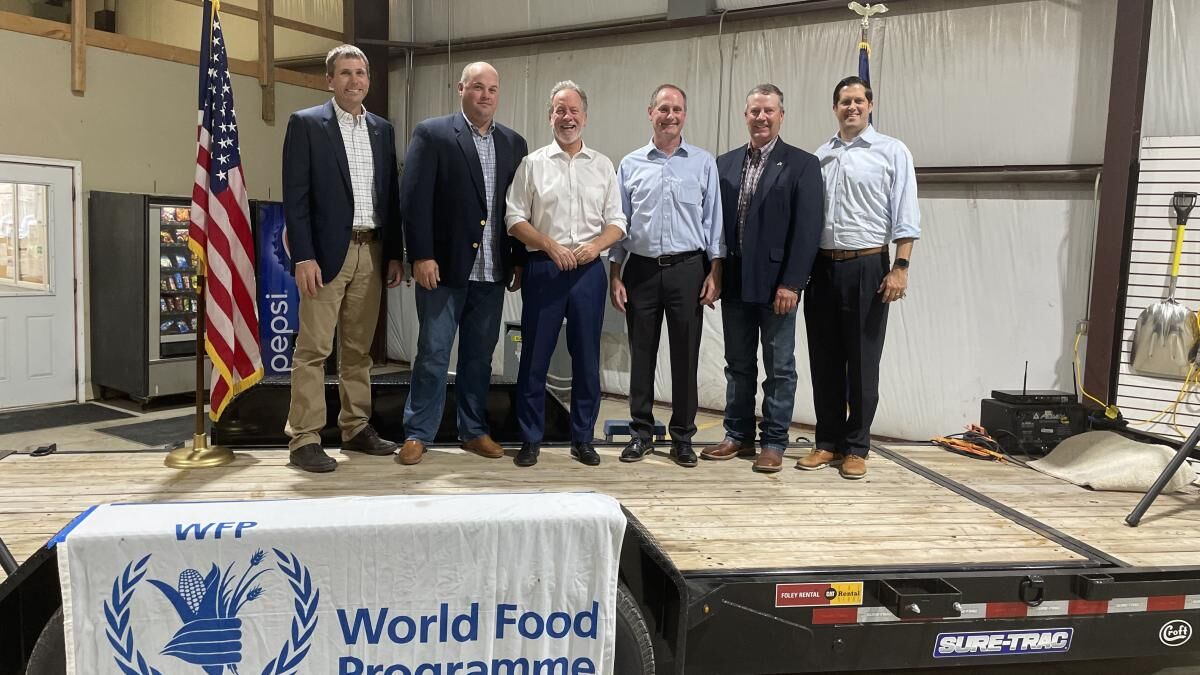U.S. Rep. Tracey Mann, R-KS, convened a group of Kansas farmers and agricultural leaders at a Cargill grain elevator in Salina to pay tribute to the rich history of Kansas agriculture’s role in feeding the world. The Nov. 3 event featured David Beasley, the executive director of the World Food Programme—the world’s largest humanitarian organization specializing in using American-grown commodities for international food assistance.
“The Big First District is the third largest agricultural-producing congressional district in the country, ranking number one in wheat production, sorghum production, and beef production,” Mann said. “To feed more people, we must encourage more people to become involved in production agriculture. American farmers can produce food more efficiently and effectively here than anywhere else in the world.”
Kansas farmers know this mission well. In September 1953, Peter O’Brien, a farmer from Cheyenne County, Kansas, stood up at his local county Farm Bureau meeting to share an idea. He wanted to donate surplus Kansas grain to hungry people around the world. Over the course of the next several months, today’s Food for Peace program was crafted. The following year, one of Kansas’ favorite sons, President Dwight Eisenhower, signed parts of the program into law. That was the beginning of what is now a longstanding Kansas tradition of commitment, care, and leadership in the international effort to address global hunger.
"Kansas farmers feed, fuel, and clothe people around the world, and it’s no small task—it takes grit, determination, and partnership between the public and private sectors," Mann said. "Farmers here know that well and have acted selflessly for more than half a century through their food contributions to the U.S. Department of Agriculture, the U.S. Agency for International Development, and the World Food Programme. International assistance programs like those that the World Food Programme implements, exemplify a strong return on investment. This investment supports American agricultural producers today and feeds a starving world.”
“Hunger is on the march around the world, with manmade conflict, COVID-19, climate extremes, and the soaring costs of food, fuel, and fertilizer bringing millions more people closer to the brink of starvation,” Beasley said. “But even under the weight of so many challenges, I still have hope thanks to communities like this in America’s heartland. History shows that time and time again, American farmers—including many right here in Kansas—have been active participants, leaders, and shapers of global food security.”
“Kansas farmers and ranchers have been at the forefront of fighting hunger,” said Terry Holdren, Kansas Farm Bureau CEO. “The Food for Peace Program was created by Kansas Farm Bureau member Peter O’Brien in Cheyenne County because he understood the importance of everyone having access to food. We’re grateful for the hard work, determination, and heart of our members.”


